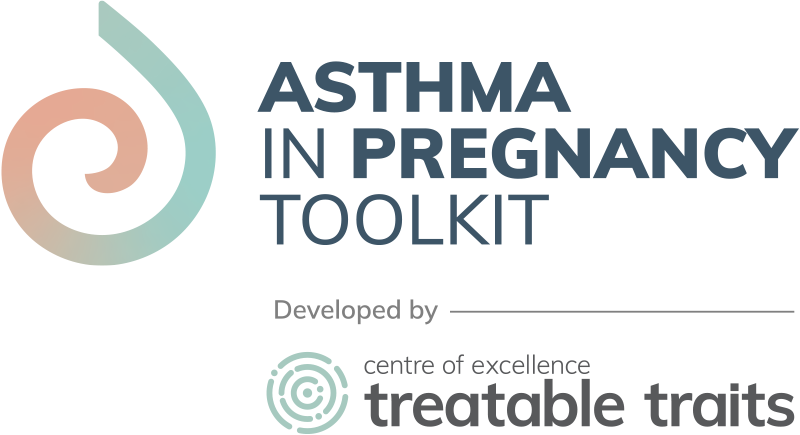Key messages
- The general consensus is that patients already on monoclonal treatment before pregnancy should continue.
- The decision to start biologic treatment during pregnancy should be carefully considered and discussed with a specialist with experience in severe asthma management, with careful appraisal of benefit-risk ratio to the mother and fetus.

A number of biologic monoclonal therapies are highly effective in carefully selected individuals with severe asthma based on their asthma phenotypes where predominant inflammatory pathways are involved (see Table below).
Binding of omalizumab to free floating or membrane bound IgE prevents allergen-driven cascade of type 2 inflammation with B cell activation and mast cell degranulation and eosinophilic inflammation. Interleukin 5 (IL5) is a key driver for eosinophilic inflammation initiated by both allergic and non-allergic triggers. Allergic and eosinophilic inflammatory cascades lead to bronchial constriction and airway hyper-responsiveness and worsening of asthma symptoms and control.
View further information, including clinical recommendations, from the Severe Asthma Toolkit here.

Biologic monoclonal therapies used to treat severe asthma. (*Not available in Australia)
Indication
There is considerable evidence supporting the use of omalizumab, mepolizumab, benralizumab and dupilumab in reducing asthma symptoms burden and exacerbation risk whilst lowering systemic corticosteroid exposures in patients with severe refractory asthma (Brusselle & Koppelman 2022). Monoclonal therapies should be considered in patients with suboptimal asthma symptom control and exacerbation risk despite addressing inhaler adherence and relevant comorbidities.
Evidence for safety relating to fecundity, pregnancy and breastfeeding
Specific data is lacking but there has been little signal for harm in pregnancy or breastfeeding from clinical experience, registries and publications. In the EXPECT pregnancy registry (Namazy et al. 2020), women with asthma treated with omalizumab had similar rates for major congenital anomalies (8%) and premature births (15%) compared with a disease-matched control cohort. Small for gestation age was 9.6% in mothers treated with omalizumab compared with 15.8% in the control cohort.
The effect of anti-IL5 therapies in pregnancy is less well known. Thus far, animal studies did not show adverse embryofetal or postnatal outcomes. The effect of dupilumab during pregnancy is also limited but there was no signal for adverse outcomes in global pharmacovigilance database (Khamisy-Farah et al. 2021).
The effect of the use of monoclonal therapies during breastfeeding has not been described. The decision to discontinue monoclonal therapies or breastfeeding should take into consideration of benefits of breastfeeding for the infant and also the importance and benefits of monoclonal therapies for the mother.
